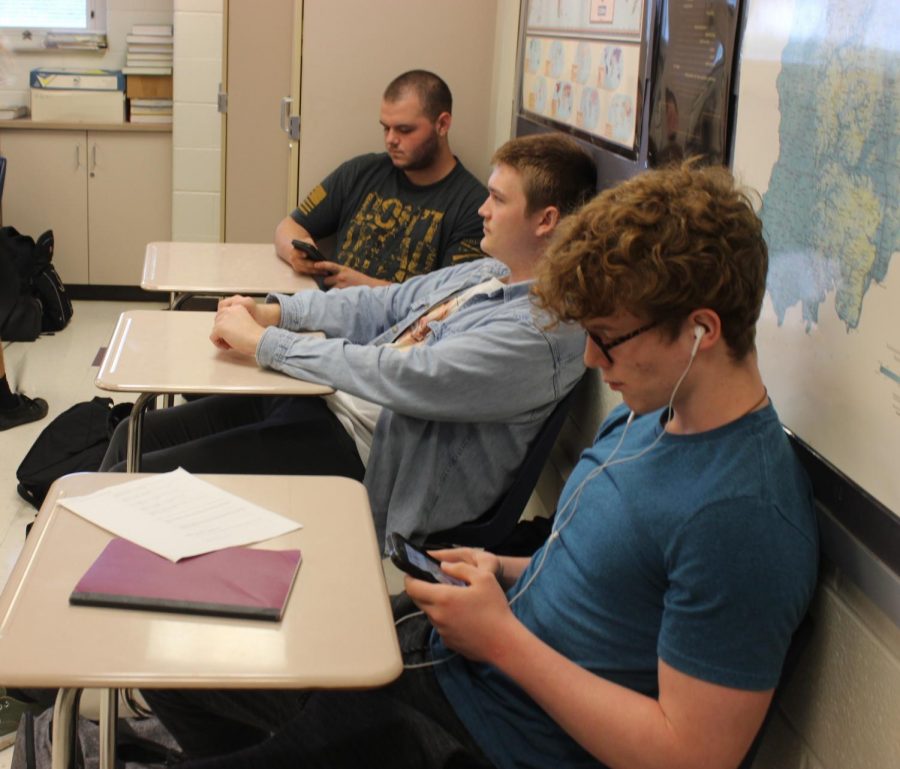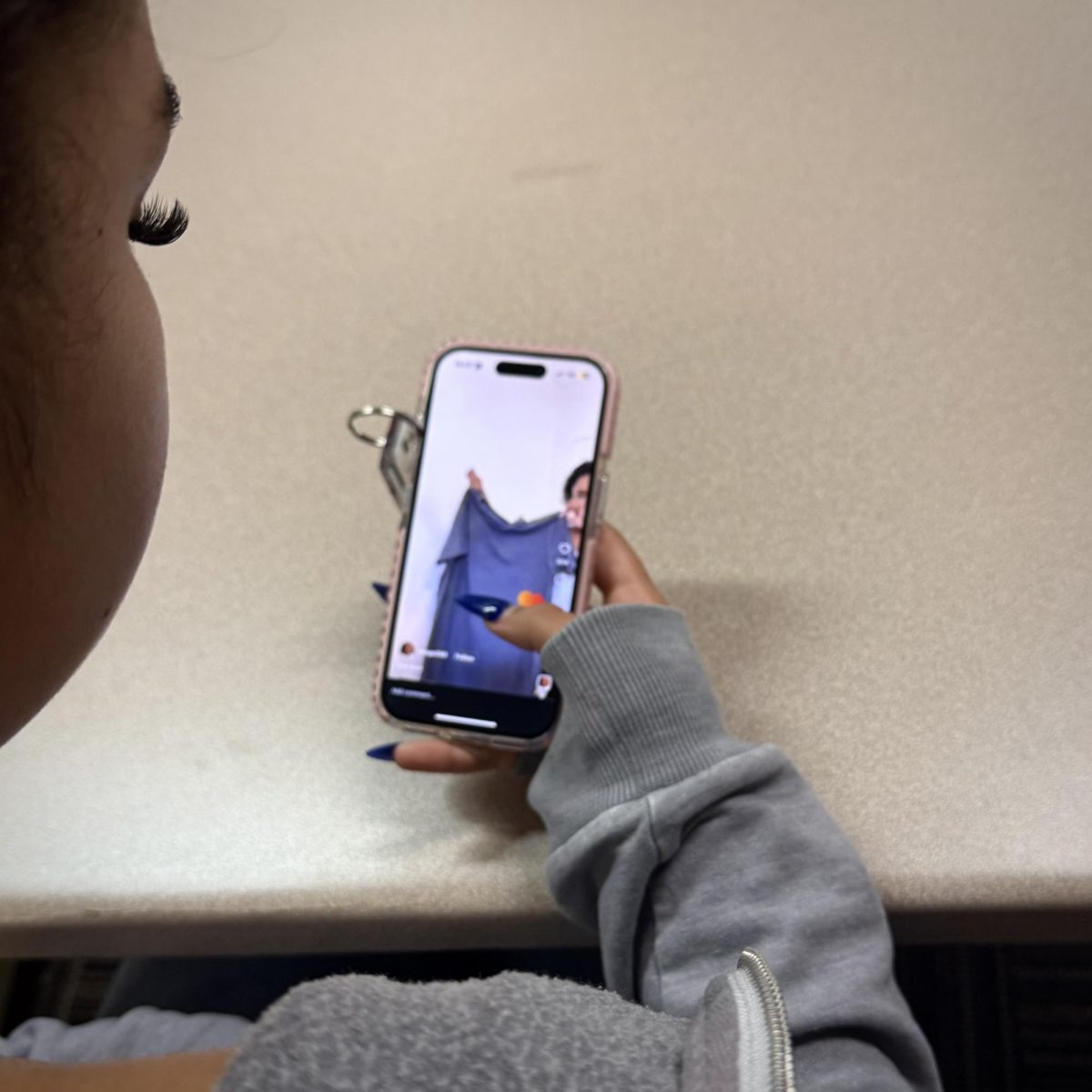Students unable to use their cell phones during lessons are proven to do 70 percent better on the same written test with the same given materials than a student with the ability to text and use social media during a lesson. Many schools in the country, along with Bloomington South, are beginning to combat this issue with stricter cell phone policies in the classroom.
According to the Bloomington South handbook, students are only allowed to use their cell phones during lunch and passing period and are to be turned off throughout the rest of the day, with the only exception being if the student has explicit permission from their teacher. Often times, MCCSC students abuse this however as adults and students use cell phones throughout the day.
“Even though I realize it’s distracting, I’ll go on my phone anyway, just because I can,” sophomore Hope Patterson said.
Students abuse of the relaxed views on phones has led teachers to enact more strict, individualized cell phone guidelines in classrooms.
Spanish teacher Shelby Batten said that she enforces her phone rules. “If I see them [cell phones] in class being used excessively, I’ll definitely take them away.” Although Batten has become more strict, she said, “students can use their phones to speed things up,” she said, referring to looking up information for class.
Many students have differing opinions on the cell phones policies in their own classrooms.
“Students, really should have [cell phones] in the classrooms and school in general. Typically it’s way easier to just look things up online than power up your computer,” freshman Samantha Martin said.
Junior Tyson Gregory agrees with teachers who believe cell phones can cut down on students’ concentration.
“I feel like [cell phones] are a huge distraction unless the teacher cracks down on them at the beginning of the school year. If the teachers threaten at the beginning of the year, it’s never an issue; but if a teacher is too lenient about it, it becomes a huge distraction and disruption,” Gregory said.



